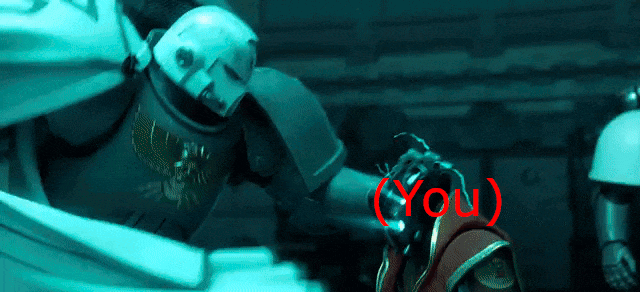I'm a bit behind on the art discussion with my reply, and I'm not here to argue whether games/RPGs are art, but if they were socially recognized that way, some things would improve.
First, there would be less forgeries of games, and forgery itself would stop being as acceptable. Games today are still stripped into IPs and owned by people who have nothing to do with their quality or history, handed over to random studios to produce new versions of like a factory product. Imagine if the Mona Lisa was treated this way, and some company owned the rights to the name and hired others to produce new paintings, or even worse, made her into different ethnicities, or even a man, and claimed "This is the current year, chud".
That would be preposterous, right? But that's exactly how games are treated. In this environment, nobody really cares about the process or the vision, that's just
lies marketing to give to the hardcore by some volunteer on a team while using the name as a "proven" label for safety, produced by and for people who feel secure simply in sequels and repetition rather than the actual content of the product itself, which is available to the lowest bidder and often made compliant for maximum loan money. Take Bloodlines 2 for example.
Second, there would be stronger consideration for the design and direction, like how Akitoshi Kawazu holds the spiritual key to making SaGa games, and Yoshitaka Murayama was helped by Kickstarter to realize Eiyuden Chronicle, the spiritual successor to Suikoden. It wouldn't guarantee that something turns out
good, but the art label would make people pause and give greater consideration to the creation of these games, and take that seriously and discuss it, much like movies with their directors, screenwriters, cinematographers, etc..
Consumers wouldn't blindly follow labels around as if they're magic letters that cast a spell for recreating a childhood experience, like how some wait for a true "Castlevania", maybe even by "Konami" for example, without realizing that Inti Creates and Iga have already carried the design of that series into the current era, and Konami couldn't do anything better than license Wayforward to produce it for them or whatever.
There are other benefits, but as it stands currently, games being treated as disposable products benefits the corposlop mentality, and lets shitty businesses and suits get away with selling us trash with impunity. Personally, I don't feel separating games from our understanding of "art" protects the concept as some abstract, intellectual ideal only monolithic forms may aspire to, like books or pictures, because art itself is both a process and a product. But I also think the way people argue games are "art" is incorrect, because they think the term should move them away from being fun, and the result should aspire to being more like an interactive movie or intellectual exercise.
Games require a more comprehensive approach to evaluating them as art, but I think games can be art precisely
because they are fun, and that's part of their appeal as a medium. Even when they're telling stories or making you jump on dinosaurs for coins.






















